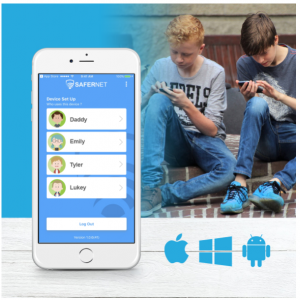SO WHAT IS SCREEN HEALTH?
Today, many human beings now spend more time each day staring at screens then they do sleeping. The effects of this are just beginning to be seen and the forecast for long term harm is alarming. As we become more knowledgeable we will certainly adapt and evolve both the technology itself and the way we utilize it. People across the planet are working to address these issues to protect the health of our society. But it will take time and there will be obstacles from those who fear losing freedom or profits. In the meantime, there are things we can do on an individual level to help protect the health of ourselves and our loved ones.
AREAS OF CONCERN
- INTERNET PORN: Internet pornography is a multi-billion-dollar industry that thrives off human instincts and innocents. With just one click a child can be traumatized emotionally and left with a negative perception of sex, love, relationships, and their body. Adults are losing their ability to have real life pleasure because of virtual world passion and people are suffering.
- VIOLENCE AND VIDEO GAMES: An individual diversion that started with silly cartoon animals (think PacMan, Qbert, DonkeyKong) has evolved into a full social immersion where children are rewarded for behaving in explicitly violent ways that would be considered deranged and criminal in the real world (think COD, GTA, Mortal Kombat). Games are intentionally created to addict users and it’s working.
- DIGITAL DISORDERS/ADDICTION: Though professionals debate terminology, the reality is that people’s lives are changing because of our relationships with screens. Chemical bursts in our brains and subsequent feelings of pleasure are causing many to spend more and more time with their electronic devices frequently ignoring negative consequences and the world around them.
- OTHER CONCERNS: Sitting and staring is changing more than just our minds, our bodies are being affected as well. A whole new system of symptoms and syndromes are being identified and diagnosed with links to screen usage
iWise Mission
iWise Living exists to promote the healthy use of electronic screens and the internet through education, consultation, counseling, and technical assistance to parents, youth, and others utilizing sound research, quality materials, professional expertise and common sense solutions.
 iWise Living Founder: Cheryl L. Mahoney, M.Ed., LSW, OCPS, CHES, CEAP
iWise Living Founder: Cheryl L. Mahoney, M.Ed., LSW, OCPS, CHES, CEAP
Cheryl Mahoney, is a Licensed Social Worker, Ohio Certified Prevention Specialist, Certified Health Education Specialist, and Certified Employee Assistance Professional with over thirty years of experience promoting mental health and wellness. Her formal education includes a Master’s Degree in Health Promotion and Education, a Bachelors degree in Human Development, and an Associates degree in Mental Health Technology. She is currently completing a doctoral program in Prevention Science with a focus on preventing internet use disorders.
Cheryl has completed the Zur Institute Professional Certification series: “Psychology of the Internet”, Dr. Kimberly Young’s “Restore-Recovery” training for treating internet addiction, Intenta’s Certification for the treatment of video game addiction, and the International Digital Wellness Institute Certification.
As a school-based therapist and mother of a 17-year-old, Cheryl is acutely aware of our youth’s cyber-culture, their dependence upon screens, and the overwhelming potential for harm. Because of her experiences and concern that “something must be done,” Cheryl began iWise as a resource for individuals, families, and communities to assist them in assessing screen use and promoting healthier use models. Her iWise mission is to teach people to be wise about screen use by learning to: “Be Aware, Protect, Prepare, Respond.”
Web-enabled electronic screens are infused into 21st Century living. We require their use at the worksite and in the classroom. It’s important that we prepare potential users with knowledge, skills and guidelines to help them make wise choices. Would you hand a child the keys to your car before they are of age and have been properly prepared for the responsibility?
Here is a great video to help understand how screens are affecting our brains.
Research findings suggest that children are greatly influenced by what their parents tell them, even if they act like they’re not listening. Talk to them. Listen to them. They need to know that you care enough to give them your attention. If they don’t get yours, they’ll look elsewhere and that could get them into trouble.












